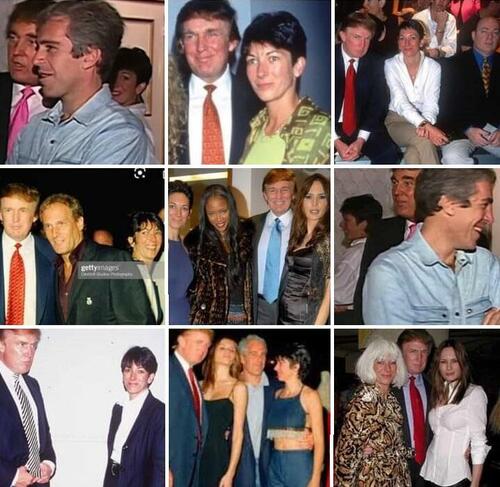Former President Donald Trump has publicly dismissed the ongoing discussions surrounding the Jeffrey Epstein files, labeling them as a political ploy aimed at undermining his administration and his supporters. This statement comes nearly a year after Trump expressed intentions to release the infamous list of Epstein’s associates, which allegedly includes names of influential individuals connected to Epstein’s criminal activities.
In a recent post on his social media platform, Trump urged his followers to “not waste time and energy” on Epstein, emphasizing that his administration is focused on more pressing issues. He expressed frustration when a reporter inquired about Epstein during a press event, remarking, “Are you still talking about Jeffrey Epstein? This guy’s been talked about for years.”
Trump’s comments come in the wake of an FBI statement asserting there is “nothing to see here” regarding the Epstein files, which has prompted skepticism among his supporters about the handling of this sensitive information. In his social media message, he characterized the Epstein files as a product of the “Radical Left” and compared them to the contentious Steele dossier, which was used during the investigations into Russian interference in the 2016 presidential election.
Controversial Connections and Political Ramifications
The controversy surrounding Epstein involves a wide array of high-profile figures, including Bill Clinton, Prince Andrew, and various business moguls. These connections have led to speculation about the reasons behind the lack of transparency regarding Epstein’s associates. Trump questioned why the files had not been released if they contained damaging information that could harm his political movement.
He stated, “Why are we giving publicity to files written by Obama, Crooked Hillary, and others? They created the Epstein Files, just like they created the FAKE Hillary Clinton/Christopher Steele Dossier that they used on me.” This rhetoric reflects a continued effort by Trump to frame the narrative around Epstein as a partisan issue.
In his recent remarks, Trump also encouraged the FBI to redirect their focus toward issues such as voter fraud, criticizing the agency for what he perceives as an undue emphasis on Epstein-related investigations. He stated, “One year ago, our country was DEAD; now it’s the ‘HOTTEST’ country anywhere in the world. Let’s keep it that way and not waste time and energy on Jeffrey Epstein, somebody that nobody cares about.”
Public Reception and Ongoing Controversy
Trump’s latest comments have sparked intense debate among his followers, with some expressing frustration over his dismissal of the Epstein files. On social media, his post received significant backlash, indicating a shift in sentiment among segments of the MAGA base. Critics argue that his attempts to downplay the issue may be perceived as an attempt to protect influential individuals implicated in Epstein’s activities.
Adding to the controversy, media personality Tucker Carlson recently suggested that Epstein may have been involved in a blackmail operation linked to foreign interests, further complicating the narrative surrounding the case. Carlson stated that Epstein was “working on behalf” of certain entities and suggested that these operations had significant implications for American national security.
As the Epstein saga continues to unfold, the political implications for Trump and his supporters remain complex. The conversation surrounding Epstein and his connections to powerful individuals is not likely to diminish, particularly as more details emerge regarding the investigation and its stakeholders. The ongoing discourse illustrates the challenges Trump faces in navigating a topic that intertwines issues of power, accountability, and public trust.
